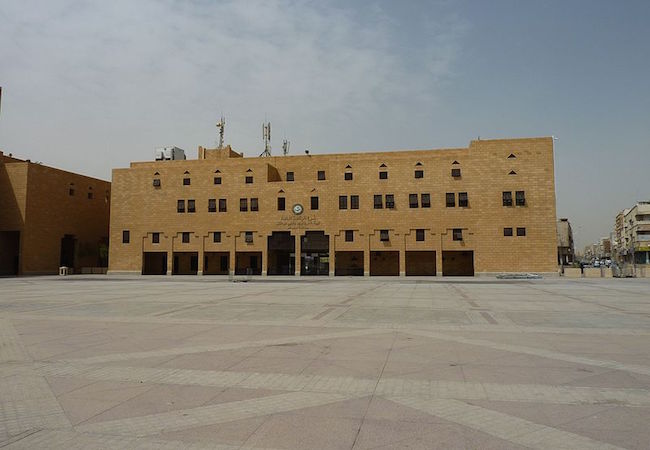Saudi Arabia: New Year beheadings pour oil on the flames

By Rene Wadlow
As a major oil producer, the government of Saudi Arabia might know the dangers of pouring oil on a fire. Tensions between Saudi Arabia and Iran related to the armed conflict in Yemen and the ever-more-complicated armed conflict in Syria-Iraq-and Kurdistan are already high. John Kirby, US State Department spokesman stressed the obvious when he said that Sheikh Nimr al-Nimr’s execution “risks exacerbating sectarian tensions at a time when they urgently need to be reduced”. The Iranian Supreme leader Ayatollah Ali Khamenei called for “divine vengeance” upon the Saudis. A mob, rarely formed spontaneously in Tehran, did not wait for the Divine to punish but rather attacked the Saudi Embassy in Tehran and set fire to an annex. Saudi Arabia has broken off diplomatic relations as a result. Crowds also demonstrated in Bahrain.
The Saudi government began the year by beheading 46 other people as well accused of undermining the State. Most were Sunnis and said to be related to a branch of Al-Qaeda and to have used or advocated using violence to further their aims. Sheikh had been highly critical of the Saudi government but had not called for violence. There are some of us, such as members of the Association of World Citizens, who are against the death penalty even when there are fair trials, competent defense lawyers, and appeals. There were none of these practices in the case of al-Nimr nor of the others. He was killed to be a graphic example that “encouraging, leading, and participating in demonstrations” will not be tolerated.
The Shia Sheikh al-Nimr was known to the Saudi authorities as a domestic dissident. He had studied Islamic doctrine abroad and so was critical of the lifeless authoritarian orthodoxy of Islam in Saudi Arabia. He came from the eastern province of Saudi Arabia where live the majority of the Shia, some 2 million of the 18 million population of Saudi Arabia. The Shia feel themselves to be marginalized, and objectively in terms of education, health services, and employment they are marginalized. With the spirit of the Arab Spring, the young Shia in the eastern provinces hoped for change, and al-Nimr became their spokesman.
When a marginalized population begins to protest and ask for more inclusive policies and practices, a government has basically two choices. The more intelligent one is to listen to the demands to see what the issues are, which issues can be negotiated and to try to reach some compromise which will not change radically the socio-economic-political structures but will meet enough of the demands to make for a more inclusive society and thus limit the impact of the protests. The other choice is to strike so brutally and with enough publicity that no other demands will be made and the dissidents will go away. Since governments have armed security forces at their command and usually control over the court system, it is often the second approach which is used. A recent example is that of Syria and the al-Assad government. The first non-violent protests in March 2011 largely limited to Dara in south Syria were for a more inclusive society and demands for relatively moderate reforms. These demands were not met by negotiations in good faith but by repression, arrests, torture with enough publicity thought to serve as a warning to others. After a few months of non-violent protests, it became obvious to many that the government would not negotiate changes. So armed violence seemed to be the only alternative. Thus we find ourselves in the Syrian case in an ever-wider area of armed conflicts, and no negotiations on a more inclusive society in view. Syria, alas, is not the only case of highly visible repression of political demands rather than discussion and negotiations. Although Saudi Arabia is critical of the Syrian government, they are following the same repressive policy. The regional situation getting worse is a real possibility.
It is not clear what we on the outside can do to foster more intelligent policies in Saudi Arabia – a country largely closed in on itself with a small decision-making elite, a large amount of money from oil (even if oil prices are declining) and a large supply of arms largely from the USA and Western Europe. Those of us active in the human rights field have often expressed our concern to the Saudi government about human rights violations, most recently concerning the fate of the nephew of Sheikh al-Nimr, Ali al-Nimr arrested as a minor for participating in demonstrations and now condemned to death. As the saying goes “The relatives of my enemy are my enemies as well.” The Saudi diplomats do not even go through the pretext of listening to NGO representatives. The Saudi government is trying to create an enlarged Islamic community of States to support its policies, especially by going beyond the League of Arab States to include African States with significant Muslim populations. Thus I would not expect many international voices to be raised beyond those of Iran and Iraq, though I would like to be proved wrong.
While I do not believe in “divine vengeance”, the beheadings on the first day of the year mark an important step down the wrong path. There are likely to be negative consequences, and we must watch the situation closely.




